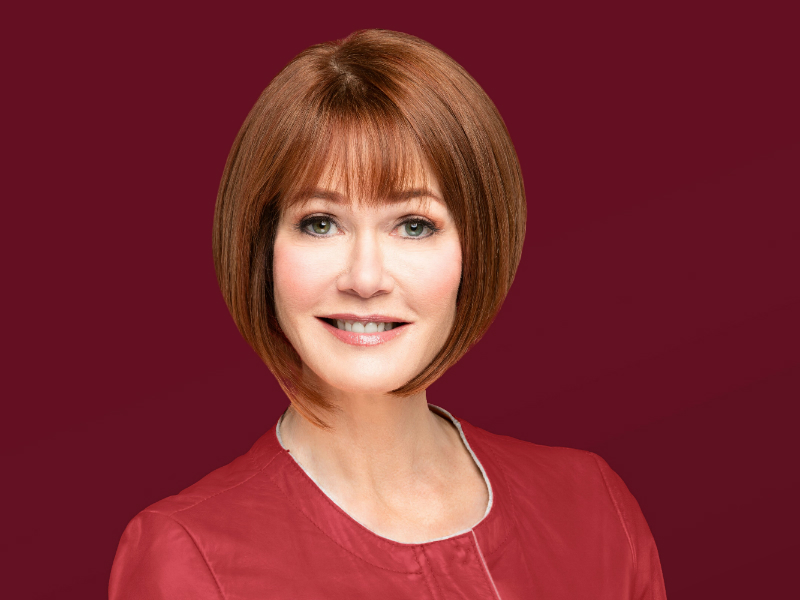Women are twice as likely as men to develop dementia and almost 70 per cent of new Alzheimer’s patients will be women, yet research has traditionally focused on men. Women’s Brain Health Initiative (WBHI) wants to correct this research bias. Founded by Lynn Posluns in 2012, WBHI has become an internationally recognized champion of the need to explore sex and gender differences. And now, through direct funding and advocacy work, WBHI has significantly moved the needle on women’s brain-aging research.
The CJN interviewed Posluns ahead of the inaugural Women’s Brain Health Day on Dec. 2.
Why did you create the Women’s Brain Health Initiative?
When I was fundraising for the Baycrest Foundation, I was exposed to scientists at the Rotman Research Institute. I discovered that women appear to be more susceptible to certain brain-aging diseases, like Alzheimer’s disease, than men – but the research focused on men. If women knew that they weren’t receiving equal scientific treatment as men, but they were more susceptible, they would want to understand why.
I stepped down from the board of the foundation and started Women’s Brain Health Initiative. It gave me freedom to put money to work in more places that might want to do research for women, in terms of brain-aging.
How has the trajectory of WBHI changed since inception?
When I started, there were very few corporate organizations willing to support women’s brain health. Today, that’s changed. There are more organizations willing to support women’s brain health, and not just with research, but in preventive education, which we know is as important, if not more important, than the research, because there has been no cure identified for diseases like Alzheimer’s, but we do know that by the time symptoms of Alzheimer’s occur, the damage has happened 20 to 25 years prior. So mid-life symptoms show up in old age. The earlier you start thinking about ways of protecting your brain health, the stronger the protective effect will be. One-third of all cases of dementia can be avoided through lifestyle. That’s huge, because that means you have more control than you realize.
WBHI created and funds the world’s first research chair in women’s brain health and aging, which was awarded to Dr. Gillian Einstein at the University of Toronto. She is focusing her work on hormone depletion and its impact on cognitive health for women. We are also funding, alongside the Canadian government, a research program called the Canadian Consortium on Neurodegeneration in Aging (CCNA), and that involves a collaborative effort of about 340 neuroscientists from across Canada.
What can women do to boost cognitive vitality and control brain health destiny?
There are six pillars of brain health: mental exercise, physical exercise, nutrition, social interaction, stress reduction and sleep.
Mental exercise is about learning something new that will stimulate your brain. It can be as simple as if you’re right-handed, brush your teeth with your left hand, or learn to tango dance, another language or to play a musical instrument.
All exercise increases the blood flow and oxygen flow to the brain.
Certain foods cross the brain barrier, like salt and sugar, which are not good for your brain. But there are certain foods that do help on the nutrition side. There is something called the MIND (Mediterranean-DASH Intervention for Neurodegenerative Delay) diet. It’s a combination of the Mediterranean-style diet and the DASH (Dietary Approaches to Stop Hypertension) diet. Even those that have mild cognitive impairment, which is a precursor to Alzheimer’s, have shown really good improvement.
It’s very important to stay socially connected. There have been studies that show that women who have a strong social network of close friends and family have a 25 per cent reduced risk of dementia, and it helps to avoid and prevent isolation and depression, both of which can be precursors to dementia.
Sleep is important not only to lay down memories, but also to get rid of the toxins in your brain. The plaques that build up in your brain overnight get flushed out when you have proper sleep, and that means about seven to eight hours a night of uninterrupted sleep.
High levels of stress release cortisone into your system, which prematurely ages your cells, including your brain cells. So it’s important, whether it’s through mindfulness meditation, yoga or pet therapy, to reduce stress.
READ: BRAINS SET TO TAKE OVER TORONTO STREETS
You have dedicated Dec. 2 as Women’s Brain Health Day and simultaneously launched the Stand Ahead Challenge. Please explain.
We are trying to make Women’s Brain Health Day a national health day. We have applied to Health Canada to help us do that, so that every year, on Dec. 2, other people and organizations can raise awareness and funds.
What we’re doing to celebrate is launching a global initiative: the Stand Ahead Challenge. We want people to participate in a fun and dynamic interactive way by doing a headstand to stand up against research bias and stand ahead for the women in their lives.
The campaign is now live at standahead.org. We’re asking people to take a photo or film themselves doing a headstand, post the picture or video on Dec. 2 and use the hashtag #StandAhead. Explain who you are standing ahead for, then donate individually or collectively and challenge two others to participate. They will have 48 hours to take the challenge. We want to try and get some momentum going.
Not everybody should or can do a headstand. You can have someone do it on your behalf or you can just talk to the issue about raising awareness that you want to stand against research bias and stand ahead for women’s brain health.
This interview has been edited and condensed for style and clarity.
